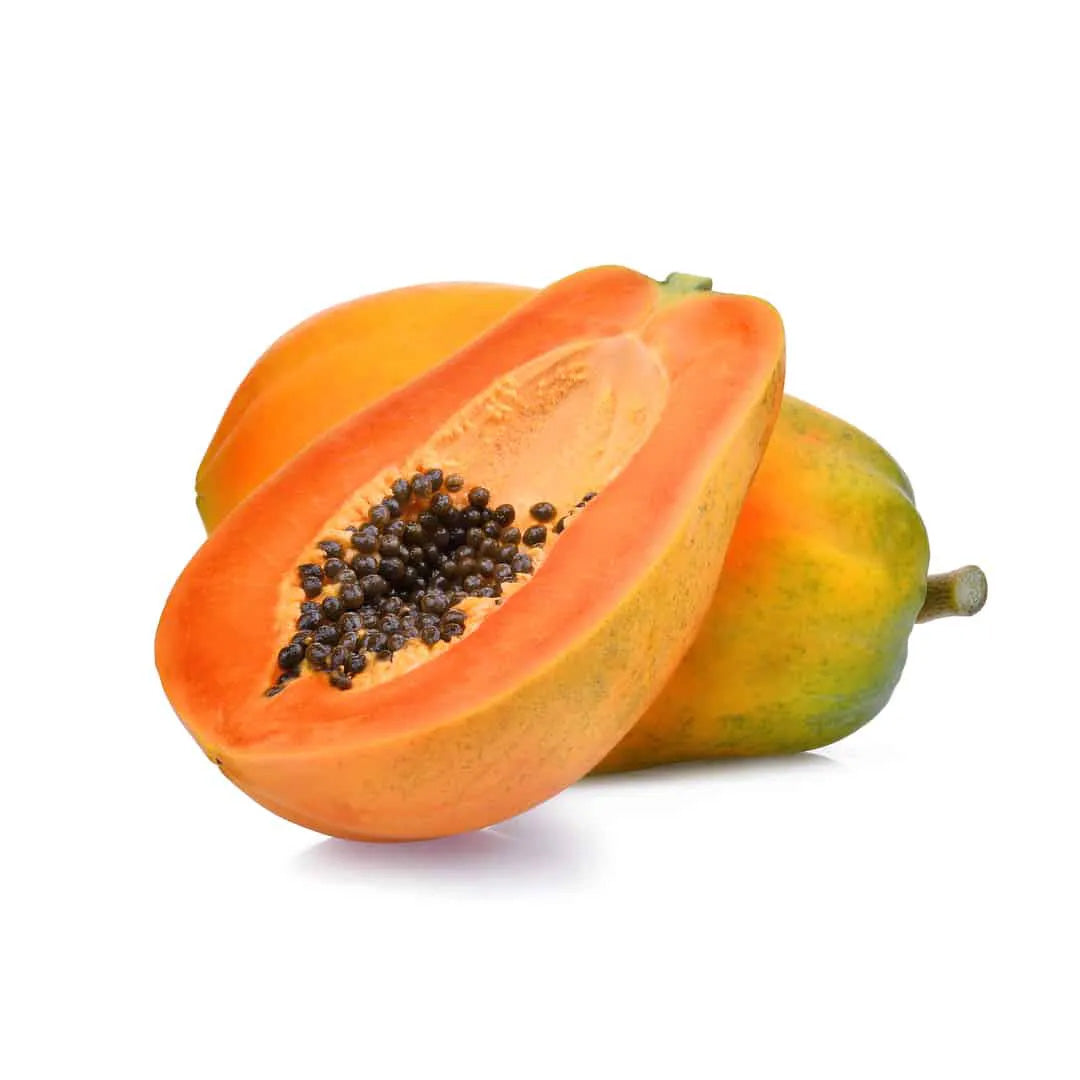
Papaya: A Tropical Fruit's Journey, Benefits, and Diverse Flavors
Share
Papaya, known scientifically as Carica papaya, is a tropical fruit that has become a staple in fruit salads, smoothies, and exotic dishes around the world. Its soft texture and unique flavor make it a favorite among many, but beyond its taste, papaya is also cherished for its health benefits and the various varieties that offer a range of flavors and uses.
Origin of Papaya
Papaya is believed to have originated from the tropics of the Americas, possibly from southern Mexico to Central America. The fruit has been a part of the native diet for centuries, if not millennia. Pre-Columbian cultures held the papaya in high esteem, not just for its delicious taste but also for its medicinal properties.
It was after the discovery of the New World that papayas were spread to other tropical and subtropical regions of the world. Today, it is cultivated in most tropical countries, and major producers include India, Brazil, Indonesia, Nigeria, and Mexico.
Benefits of Papaya
Papayas are not only delicious but also incredibly healthy. Here are some of the key health benefits:
- Rich in Vitamins: Papayas are loaded with Vitamin C, A, and E, which are antioxidants that can help prevent the oxidation of cholesterol.
- Digestive Aid: The fruit contains an enzyme called papain, which aids digestion and can help break down proteins.
- Anti-Inflammatory: The enzymes in papaya can also reduce inflammation in the body, which is beneficial for people suffering from arthritis or asthma.
- Cancer Prevention: Some studies suggest that the lycopene in papaya can reduce cancer risk.
- Skin Health: When used topically, papaya can be beneficial for skin wounds and infections due to its antimicrobial properties and enzymes that help remove dead skin cells.
Varieties of Papaya
There are two primary types of papayas that are widely consumed:
- Hawaiian Papayas: Often called Solo papayas, these are smaller, with a more intense sweetness. They typically weigh about one pound and have a buttery flesh that is bright orange or pink.
- Mexican Papayas: These can grow much larger than Hawaiian papayas, sometimes weighing up to 10 pounds. They have a less intense sweetness, and their flesh can range from yellow to orange-red.
There are numerous other varieties that vary in size, taste, and flesh color, such as 'Sunrise', 'Sunset', and the 'Red Lady'.
Flavor and Seasons
Papaya's flavor is often compared to that of a melon, but it's more tropical with nuances that can range from creamy and sweet to slightly musky, depending on the variety. The flesh is juicy and buttery soft when ripe. Papaya is usually enjoyed fresh, either alone or in fruit salads, but it can also be cooked into stews or used in smoothies and desserts.
Papaya trees produce fruit year-round, but there is a peak season which usually runs from early summer to fall. During this time, the fruit's quality and sweetness are considered to be at their best.
How to Enjoy Papaya
To eat papaya, it should be cut lengthwise, and the black seeds inside scooped out. The seeds are edible and have a peppery taste, but they are usually discarded. The flesh can then be scooped out with a spoon or cut into cubes.
As global trade has expanded and transportation has improved, the availability of papaya has become almost year-round in many parts of the world. The capacity to enjoy papaya in various forms, from fresh slices to jams and juices, has made it a global favorite.
In conclusion, papaya is more than just a delicious tropical fruit. Its origins from the Americas, its diverse varieties, and the numerous health benefits it provides, make it a remarkable addition to any diet. As a versatile ingredient in both sweet and savory dishes, its appeal spans across continents, making the papaya a true gift of nature's bounty. Whether you're enjoying a simple plate of fresh papaya or a more complex dish that features this fruit, the benefits and flavors are sure to be a tropical delight.